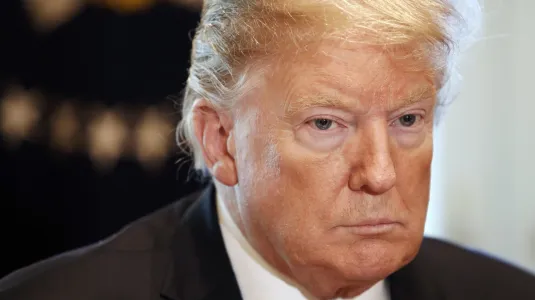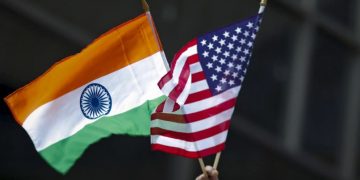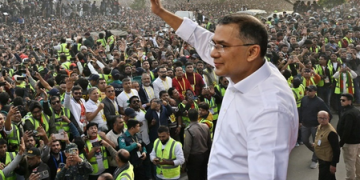The memories of the deadly al-Qaeda strikes on 9/11 on iconic US building complexes are still alive even after several American administrations virtually wound down what was once called the “global war on terror.” As the attention of the world is now riveted on Israel-Hamas and Russia-Ukraine conflicts, the administration of US President Donald Trump has begun, without much fanfare, its war on drugs with an ulterior motive of regime change in various Caribbean nations.
The unprecedented deadly military strike recently on an alleged Venezuelan drug boat in the Caribbean, killing 11 persons aboard, makes it clear the US plans to use tactics it has long employed against terrorist groups and Latin American criminal organisations to target regimes in countries perceived to be inimical to US interests. The strikes came soon after the US deployed eight warships to the Caribbean and Pacific around South and Central America, regarded as an unusually large surge of military force to the region. Trump administration officials have suggested that there may be more strikes to come. This is, however, only expected considering the fact that Trump had pledged during his election campaign to use military force against drug cartels.
Shortly after his inauguration on 20 January 2025, his administration designated several criminal groups, including the Venezuelan gang Tren de Aragua, as foreign terrorist organisations (FTOs) and specially designated global terrorists (SDGTs), putting them in the same legal category as al-Qaeda and ISIS.
Also Read: Pied-Piper Politics
Last month, the New York Times even reported without being contradicted by the administration that the President had signed a secret directive instructing the Pentagon to start using military force against these designated organisations. Trump himself announced that the US had carried out a “kinetic strike” against Tren de Aragua narco terrorists. The administration has also accused President Nicolas Maduro’s government in Venezuela of controlling Tren de Aragua. This is a highly contested claim. For his part, Maduro, a longtime US adversary, has levelled charges against the US that it is seeking regime change in Venezuela. US officials have the gumption not to flatly deny it, with Secretary of Defence Pete Hegseth calling it a “presidential decision.” The fast developments indicate the Trump administration is set to make major shifts in the more than half a century old history of America’s war on drugs, its relationship with Latin America and increasing militarisation.
The words of Secretary of State Marco Rubio smack of the arrogance and blatant interference with other country’s affairs that mark the present US administration. Rubio argued merely intercepting boats cannot curb the drug menace. “What will stop them is when you blow them up,” he insisted. Experts point out Venezuela does not produce drugs, but acts as a conduit for supplying narcotics produced in Colombia and Peru. Even then, the quantity of drugs sent to the US through Venezuela is put at a few hundred kilograms a year, which is nothing compared to the quantum of smuggling the commodity through some other Latin American countries that are on the same page with the US. This leads to the suspicion that the strike at the criminal gang operating in Venezuela has motives other than taking on the drug cartels alone. What is more, even if members of these gangs are rounded up, they would have to serve certain years in jail.
Eliminating them without the due process of the law is a war crime. The drug menace cannot be curbed through such patently illegal acts. The US needs to strengthen its border vigil, stop supply of arms the drug syndicates use and make them face the law. This war against drugs is dovetailed with the Trump administration’s war against migrants. Mixing the two up may not be the solution. The US under Trump should understand that might is not always right.






































